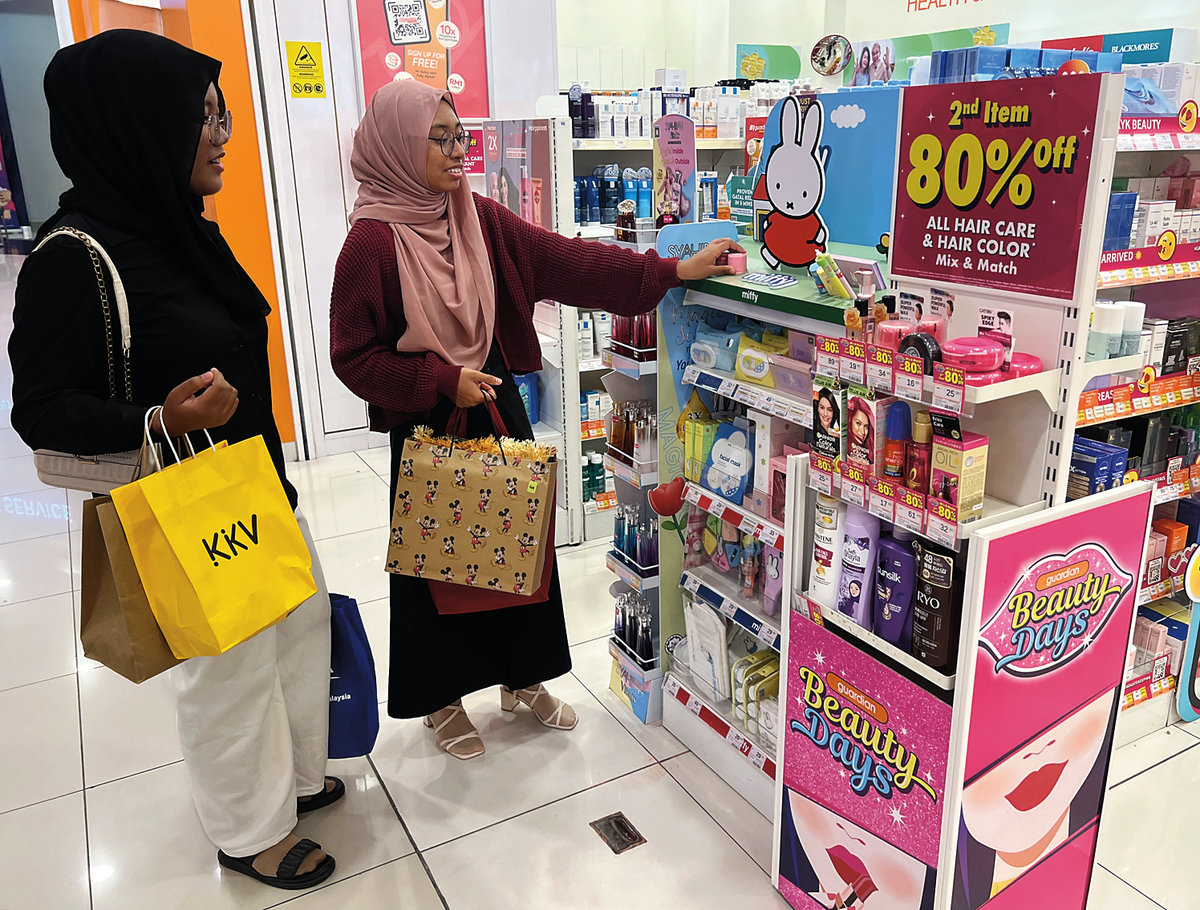PETALING JAYA: Young Malaysians are overspending at alarming rates, driven by rising living costs, emotional triggers and the ease of digital payments.
Universiti Teknologi Malaysia psychology professor and deputy dean Dr Siti Aisyah Panatik told theSun that youths, particularly those aged 18 to 30, exhibit distinct spending patterns shaped by urbanisation, lifestyle choices and varying levels of financial literacy.
On average, a student in Malaysia spends between RM1,500 and RM1,700 monthly, while a working professional spends approximately RM2,700 to RM2,900.
These expenses generally cover essentials such as food, housing, utilities, transport, personal care and healthcare.
She noted that risky spending is often driven by impulsivity, sensation-seeking, difficulty delaying gratification and peer comparison.
“Many people also use shopping as emotional relief, commonly referred to as retail therapy,” she said.
She warned that platforms such as TikTok and Instagram amplify the problem through influencer marketing, lifestyle envy and fear of missing out.
“This creates a culture in which material success is equated with happiness,” she said, adding that emotional spending can be difficult to recognise.
Warning signs include regretting purchases, shopping when feeling down or consistently spending beyond one’s means.
She also said overspending may point to deeper mental health issues such as depression, ADHD or bipolar disorder.
“Those with ADHD may act impulsively and struggle with planning, while individuals with depression might shop to boost their mood.”
She added that compulsive shopping or oniomania, is now recognised as a behavioural addiction marked by repeated, uncontrollable urges to shop despite negative consequences.
Proven psychological techniques, including cognitive behavioural therapy and mindfulness, can help individuals curb emotional spending.
Aina, a 25-year-old private sector employee earning RM3,200 a month, admitted she spends over RM2,200 monthly, mostly on food deliveries, online sales and trending beauty or lifestyle items she rarely uses.
“I spend RM18 on coffee every other day, RM400 on skincare and makeup I haven’t even opened, and way too much on things just because they are viral online.”
By month’s end, she barely has RM50 left to save.
“I keep telling myself I’ll do better next month, but the cycle just repeats. I know I’m living beyond my means but it’s hard to stop when spending feels so easy.”
A recent study by the Financial Industry Collective Outreach (Finco) found that poor financial literacy is leaving youths vulnerable to impulse spending and short-term gratification.
Finco chief executive Clare Walker explained that the convenience of digital financial services creates a “painless” experience that fuels unhealthy habits, particularly among teens.
According to its Money SENse 2023 survey, 75% of students aged 16 to 19 have only low to moderate financial knowledge, limiting their ability to make sound long-term decisions.
“More than 65% admitted they preferred spending for instant gratification over planning for the future.”
The survey also revealed that while many youths manage basic financial tasks, they struggle with more complex topics such as investment risks, insurance and income tax.
“Only 40% understood investment risks and just 37% knew how insurance premiums work.”
Walker emphasised that financial education should begin early – ideally before the age of seven – when core money attitudes start to form.
“Parents play a crucial role by modelling habits such as saving, comparing prices and delaying gratification.”
She said Finco promotes practical steps such as tracking monthly expenses, pausing before impulse purchases, recognising emotional triggers and setting aside small amounts for treats to avoid larger splurges.
“Teachers must also be equipped to teach financial literacy, especially in the context of digital finance and scams.”
To support this, Finco launched the Train-the-Trainers programme in 2024 with the Financial Education Network and the Education Ministry.
The initiative aims to train over 10,000 teachers, particularly those working with B40 communities, to help students build financial confidence.
“Recognising your financial habits and seeking help – whether from banks, credit card providers or agencies such as the Credit Counselling and Debt Management Agency – can be a powerful first step towards lasting change,” she added.









